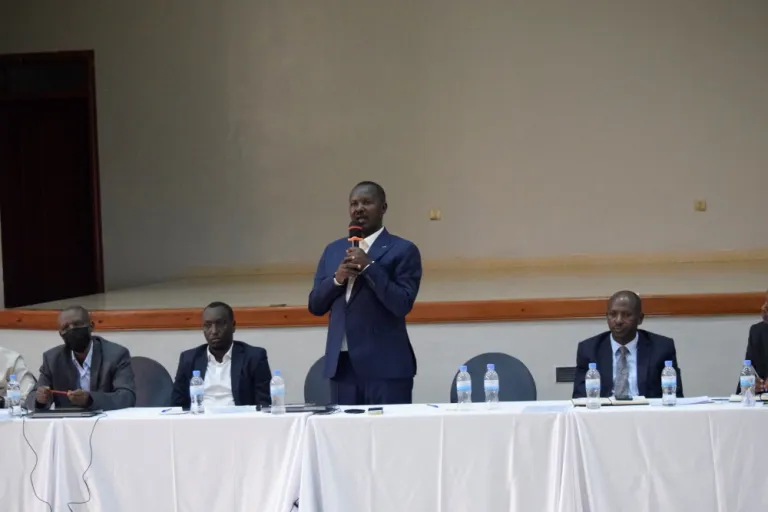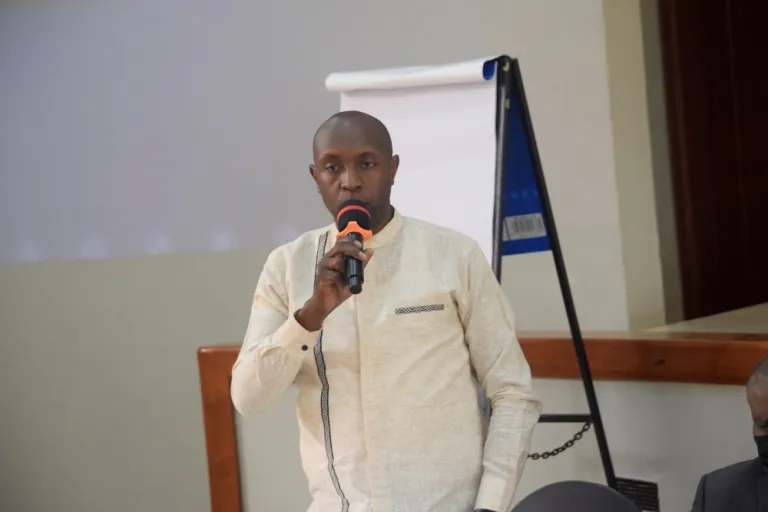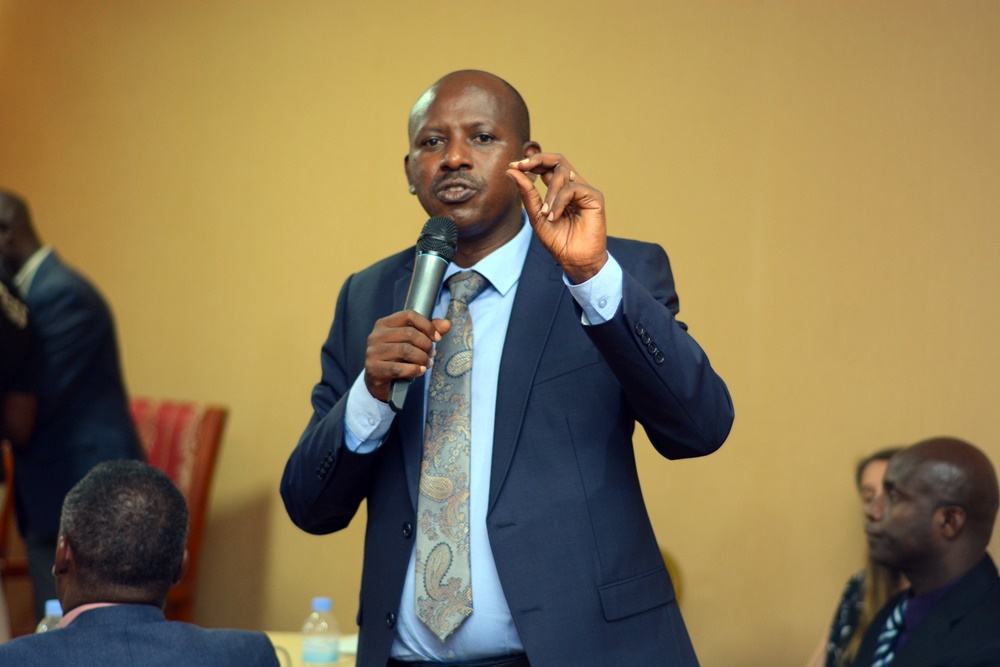Eng. Andre MUTSINDASHYAKA, the Secretary General of the Rwanda Extractive Industry Workers Union (REWU), stressed the importance of creating miners’ cooperatives as the most effective means for addressing their advocacy needs.
This statement was made on November 1, 2024, during the General Assembly of the Rwanda Federation of Mining Cooperatives (FECOMIRWA). The assembly provided a platform for FECOMIRWA’s members to engage in discussions aimed at enhancing the performance of the sector.
Additionally, the assembly explored the integration of INKOMANE, a digital system designed to streamline operations within the mining sector, including managing workers, tax payments, and inspections.
“The mission of the federation is similar to that of the Syndicate, as we both focus on advocacy. The cooperative, however, takes it a step further by emphasizing its commitment to more than just business.” said Eng. Mutsindashyaka.
“Dear members, having a voice is not easy and requires effort. The federation you have created is a crucial platform where each of the 22 cooperatives can speak up and be heard. By uniting under the federation, their voices are amplified and their thoughts can be better understood and appreciated.” Eng. Mutsindashyaka added.
Eng. Mutsindashyaka revealed that with nearly 29 years of experience in syndicates, he understands the importance of working together for effective advocacy.
He expressed his satisfaction with the mining sector’s decision and suggested that cooperative investors should consider establishing a mining fund. REWU has already requested the concerned institutions to establish such a fund, as mining is the leading currency earner for the country, but many sectors are unaware of the energy and capital required for mining.
He emphasized the need for miners to have financial statements for their operations, as they often lack them. He mentioned that they are some investors often seek records to support their mining operations, but the owners claim they are not getting anything out of the business. This raises questions about how to invest in mining. He expressed gratitude towards the government agencies for introducing the Inkomane system, which will aid in maintaining financial records.
Additionally, Eng. Mutsindashyaka announced a campaign promoting mining sector Recognition of Prior Learning (RPL), a move they agreed to with the country, which will issue certificates as valid as diplomas.
Ruhanga Songa, President of FECOMIRWA, announced that certain cooperatives have been permanently suspended from mining permits, with some already having lost their permits, according to several cooperative leaders. He also highlighted concerns about members receiving varying contributions based on their income levels, despite their request for a uniform contribution.
Patricia Nyirabushuru, the President of TUHAGERE Cooperative, disclosed that their mining license had been suspended after a year of inactivity. She expressed her frustration, stating that the license was permanently suspended without any prior warning, leading to a halt in certain activities.
Nyirabushuru appealed for support, urging advocates to intervene on their behalf. She highlighted the financial repercussions of the suspension, including payments to workers who were unable to work. She emphasized the significant investments made by the cooperative, underscoring the unexpected setback they faced.
In conclusion, Nyirabushuru called for assistance and action to address the challenges they were facing following the suspension of their mining license.

In response to these inquiries, Jean Damour BAGIRIJABO, Director Inspector of the Rwanda Mines, Petroleum, and Gas Board (RMB), mentioned that a comprehensive plan has been put in place to guarantee adherence to regulations, proper ventilation in mines, and environmental conservation. As a result, certain license holders have been rejected. However, applicants are encouraged to patiently await the administration’s verdict and, if made, regain their licenses.
He expressed gratitude to the members for their hard work, acknowledging the issues they faced. He predicted a profit in the next year, but acknowledged the need for collective participation, as FECOMIRWA belongs to all.
He argued that changes in mining are delayed due to its significant importance to the country, providing jobs and earning foreign currency. It cannot continue to be a hand-paying sector, prone to accidents, and wasteful of water, emphasizing the importance of strength in decision-making.
He said, “I ask you to accept the changes because there is nowhere to escape them; without lying, everything has changed; we are in the process of reform, not only in RMB but in all sectors.”
Bagirijabo reported that there is a bank that has arrived at RMB with plans to provide loans to miners soon. He clarified that RMB is not a tool to revoke licenses, but rather to assist those who have been given notices to correct their issues. He hoped that those who have done so have not been revoked.

Didier Muhire, Deputy Project Manager of the International Tin Supply Chain Initiative (ITSCI), urged cooperative members to focus on capacity building, promoting diversity in mining and cooperative functioning. He emphasized the importance of advice and overall improvement in production.
“As part of ITSCI, we aim to collaborate more with cooperatives to enhance the development of our sector,” said Muhire.



Leave a Reply